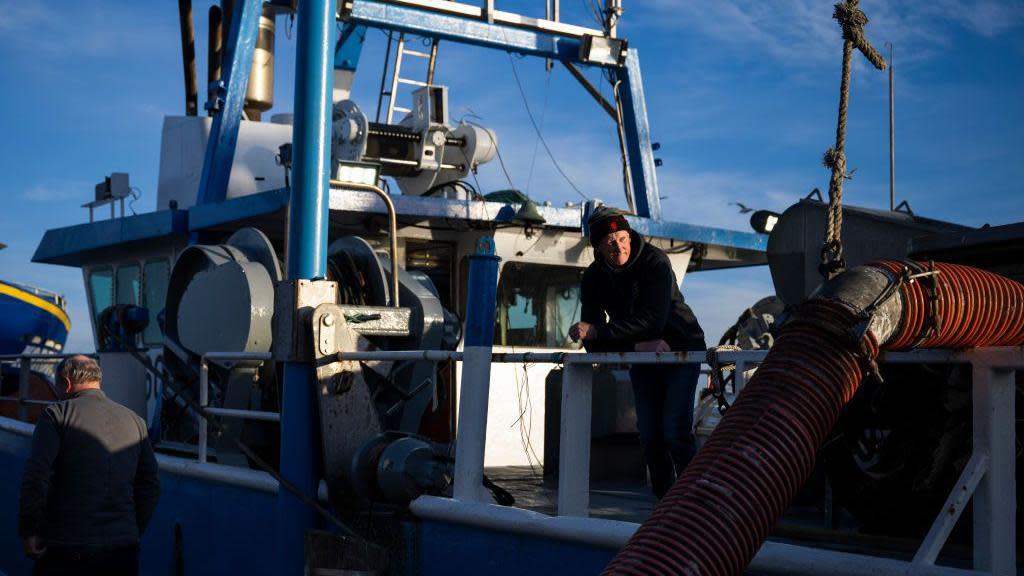The Chevron deference, and why it mattered

The Supreme Court in a 6-3 vote killed a legal precedent that conservatives have attacked for decades, known as the "Chevron deference".
"Today, the court places a tombstone on Chevron no one can miss," Justice Neil Gorsuch, one of the most conservative members wrote.
The deference, set in 1984 in a case involving the oil giant, gave federal agencies wide powers to interpret laws and decide the best ways to apply them.
In ending the deference, the conservative-majority court has slashed and severely weakened the powers of agencies including the Environmental Protection Agency.
The aftershocks of such a seismic decision will be felt throughout the federal government. Let's take a look at how we got here.
What was the Supreme Court case about?
While “Chevron deference” may sound like a chess strategy, it actually refers to a landmark Supreme Court ruling, Chevron v. Natural Resources Defense Council.
The court decided in 1984 that judges should defer to federal agencies in interpreting ambiguous parts of statutes.
The idea was that if Congress passes a law where something is unclear - or there is a “gap” - it is up to an agency to fill in the gap.
In practice, that gave arms of the federal government such as the Environmental Protection Agency the freedom to create and implement rules without fear of protracted legal battles.
Then, in 2020, herring fishermen entered the chat.
That year the Trump administration began requiring that they cover the costs of taking federal monitors on fishing trips. The fishing vessels did not have a choice - it was illegal to fish without federal monitors on board to check on the Atlantic fishery, an area that extends from Maine to North Carolina.
They previously didn't pay for the monitors.
Commercial fishing companies - supported by conservative and corporate groups including the billionaire Charles Koch - sued in two separate cases.
In one, a federal judge ruled the National Marine Fisheries Service could legally impose the costs under the Chevron deference.
Who wins in throwing it out?
This is a big win for conservatives
For four decades, they have been working to overturn the precedent.
By giving executive agencies more freedom to implement laws, in the conservative view, it vastly expanded the power of the federal bureaucracy.
In areas like workplace safety, financial markets and the environment, courts – and, by extension, businesses contemplating legal challenges to regulations - had to yield to agencies' interpretations of laws.
The Supreme Court has been paring back agency power in recent years, saying there are “major questions” of policy that Congress must explicitly detail in order for agencies to take action on them.
“Chevron deference” as a legal principle, however, had endured, setting guidelines for lower courts to follow.
On Friday, the Supreme Court delivered the final blow.

Who loses?
This is a defeat for the Biden administration, which argued that throwing out the Chevron deference would be destabilising.
Liberal Justice Elena Kagan said that the ruling elevates the Supreme Court’s power over other branches of US government. The president, congress and court are supposed to have equal power under the US constitution, so by her reading the ruling is a loss for the White House, the House of Representatives and the Senate.
Advocacy groups and progressives also saw it as a setback for clean water, public health, fair lending, worker safety, and other areas where people rely on federal help.
The Asbestos Disease Awareness Organisation, for example, called the ruling "a monumental setback that will harm all Americans and profoundly impact our nation's environmental safeguards and public health protections".
"The court has set us on a path towards policy paralysis," it said.
Where do we go from here?
The ruling does not apply to past agency regulations and actions.
Looking to the future, corporations and others wanting to challenge agency rules will be heading to court and we can expect to see judges around the country now weighing in on what the federal government - and its bureaucracy - does.
Rules, requirements and penalties could all be stopped before they are implemented or overturned.
In the long-term, expect Congress to try to write more explicit instructions in its laws that lay out exactly how agencies will implement them. That could lead to confusion in large agencies carrying out different programmes - if Congress can actually pass those laws.
“The problem is many people think the congress is quite dysfunctional now,” Philip Bobbitt, an expert on constitutional law at Columbia Law School, told the BBC.
“Where the court is going… seems to defy the realities of gridlock in the Congress as its actually operating today."


